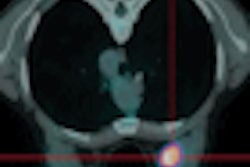Dear Women's Imaging Insider,
A new research paper published today in the Archives of Internal Medicine is making waves in the mammography community. In the study, Norwegian researchers claim that performing mammography screening at more frequent intervals finds some cancers that might otherwise "spontaneously regress" and would pose no threat were they not discovered.
The researchers compared cancer rates among one group of women who were screened every two years with rates in another group who received only one screening at the end of a six-year period. They found that there were actually more cancers in the group that was screened more often.
Does the study actually provide evidence of spontaneous cancer regression, or could there be other factors at work? Find out for yourself by clicking here.
In other news, we address the topic of scintimammography in this edition's Insider Exclusive. A group of researchers from the Mayo Clinic in Rochester, MN, explain their results with a dual-head breast SPECT system that might offer an improvement over other scintimammography systems that have been developed. To read the article, click here.
As a Women's Imaging Insider subscriber, you have access to the article days before the rest of our members.
For more news in the Women's Imaging Digital Community, find out what California researchers are saying about whether future reimbursement cuts could lead to more hip fractures among seniors. Also discover why dual-time-point FDG-PET/CT improves breast imaging accuracy, and read about why single-session breast radiotherapy is safe for pregnant women.
As always, if you have a comment, report, or article idea to share about any aspect of women's imaging, please feel free to contact me at [email protected].




















